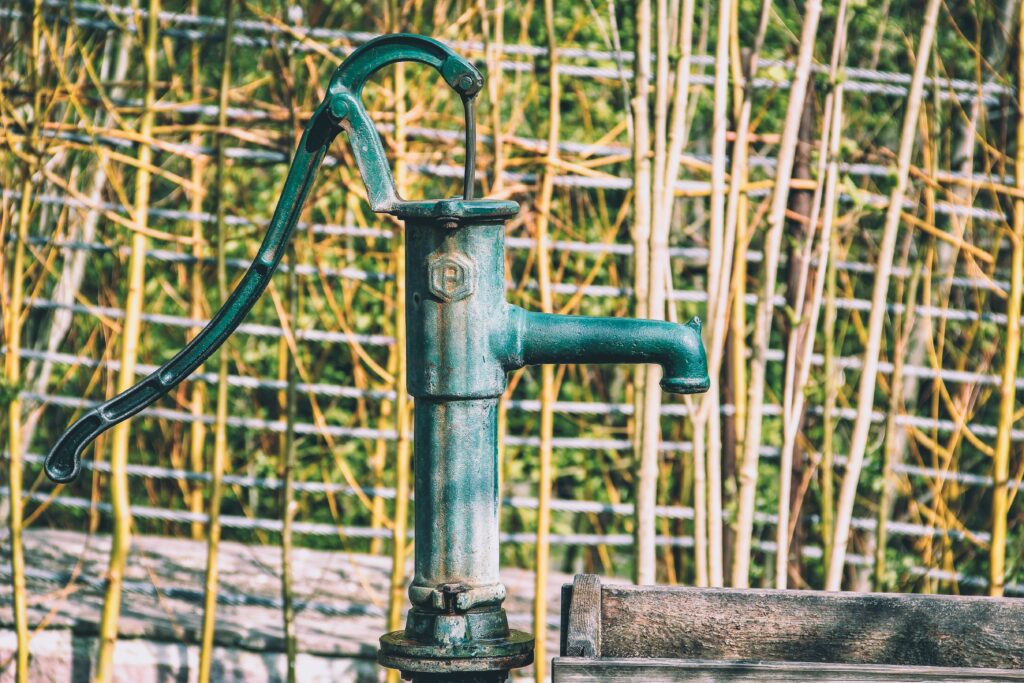In many households, water quality is a major concern, especially when it comes to well water. One prevalent issue is the presence of iron, which can lead to a host of problems, including staining, unpleasant taste, and damage to appliances.
This is where an iron filter becomes essential. But what exactly is an iron filter, and how does it work? Let’s explore the details to understand the significance of iron filtration for well water in maintaining home water quality, as well as learn how to remove iron from water in your home.
What is an Iron Filter?
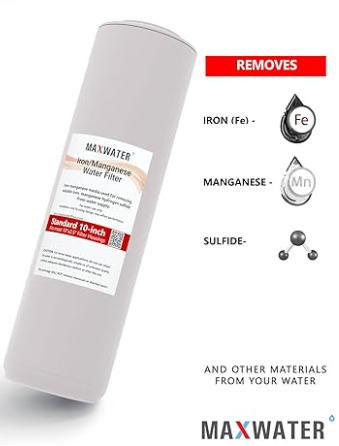
Iron in well water is a naturally occurring phenomenon. While it’s not harmful to health, it can cause aesthetic and practical issues in your home.
When water containing iron is exposed to air, it oxidizes, forming visible rust particles that can stain fixtures and laundry. The presence of iron in water can lead to reddish-brown stains on sinks, toilets, and bathtubs and can also affect the colour of your clothes, making them appear dingy and old.
A water filter for iron well water can save you much headache when it comes to HVAC as well. Iron in water can potentially cause problems for a water-source heat pump or any other HVAC system operating through water.
How Iron Filters Work
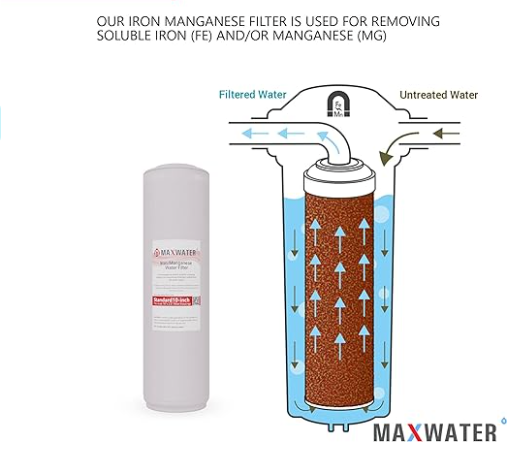
An iron filter is a specialized water filtration system designed to remove iron from well water. It uses a process called oxidation to convert soluble iron (ferrous iron) into insoluble iron (ferric iron), which can then be filtered out. This process not only improves the taste and appearance of your water but also protects your plumbing and appliances from damage.
The oxidation process can be achieved through various methods, including air injection, chemical oxidation, or the use of a specialized media that catalyzes the reaction. Once the iron is oxidized, the filter traps the insoluble iron particles, effectively removing them from your water supply. The filtered water is then clear, free of iron, and safe for use in your household.
The Benefits of an Iron Filter
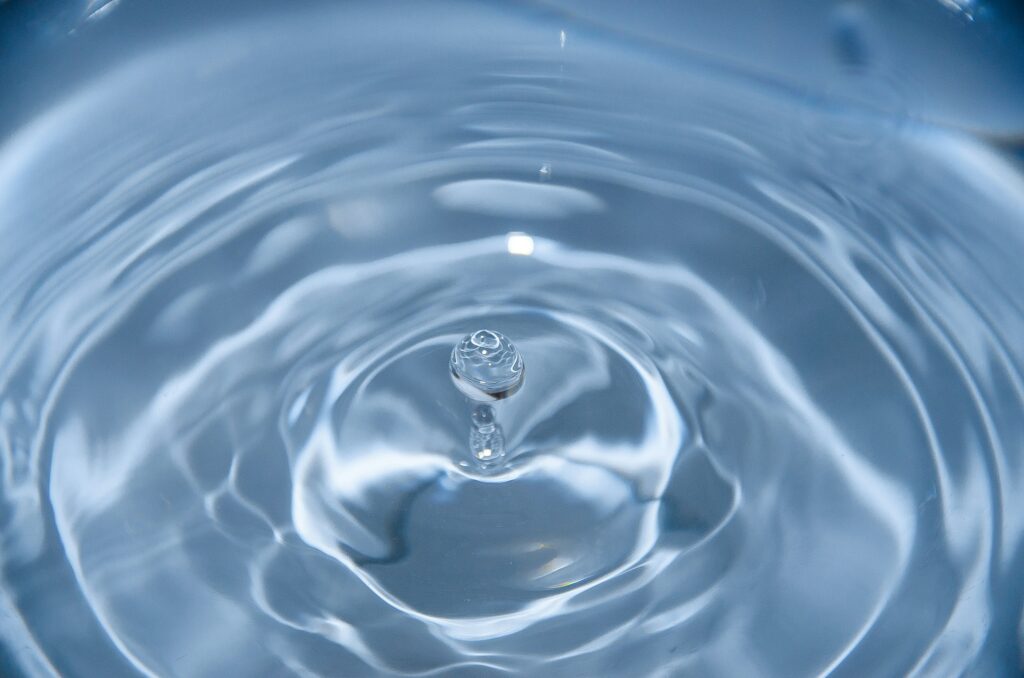
Installing iron filters for well water Canada has can significantly improve the quality of your water and protect your household from the negative effects of iron contamination. These specialized filtration systems are designed to target and remove iron particles, ensuring your water is clean, clear, and safe for all your daily needs. An iron filter offers several benefits besides improved HVAC systems functionality, including:
Improved Taste and Odour
Iron can give water an unpleasant metallic taste and odour. Filtering out iron enhances the taste and smell of your water, making it more pleasant for drinking and cooking.
Protection of Plumbing and Appliances
Ion buildup can cause clogs and corrosion in pipes and appliances, leading to costly repairs and replacements. An iron filter protects your plumbing system and appliances by preventing iron accumulation.
Extended Lifespan of Water Treatment Devices
Iron can impair the effectiveness of other water treatment devices, such as water softeners and reverse osmosis systems. By removing iron, a water iron filter extends the lifespan and efficiency of these devices.
Healthier Skin and Hair
Excess iron in water can cause skin irritation and affect hair health, leading to dryness and discoloration. Using filtered water can result in healthier skin and hair.
Choosing the Right Iron Water Filter System

Before selecting an iron water filter system, it’s important to test your water to determine the level and type of iron present. This will help you choose the most effective system for your specific situation.
It’s also essential to consider the flow rate and capacity required to meet your household’s water usage. A thorough understanding of your water quality and needs will guide you in selecting the right filter.
Types of Iron Filters
There are several types of iron filters available, each designed to address different forms of iron and water conditions:
Air Injection Filters
These systems use air to oxidize soluble iron into insoluble particles, which are then trapped in the filter media. They are effective for removing high levels of ferrous iron and are low maintenance.
Chemical Oxidation Filters
These filters use chemicals like potassium permanganate or chlorine to oxidize iron, making it easier to filter out. They are suitable for water with ferrous and ferric iron but require more maintenance to replenish the chemicals.
Greensand Filtration
Greensand filters use a special media coated with manganese oxide to oxidize and filter iron. They are versatile and can handle a range of iron concentrations but may require regeneration with potassium permanganate.
Birm Filters
Birm is a media that catalyzes the oxidation of iron without the need for chemicals. It’s an effective iron water filtration system for lower concentrations of iron and has a long lifespan.
Manganese Dioxide Filters
These filters use a manganese dioxide media to oxidize and filter iron and manganese. They are highly effective but can be more expensive than other options.
Iron Filter Installation and Maintenance
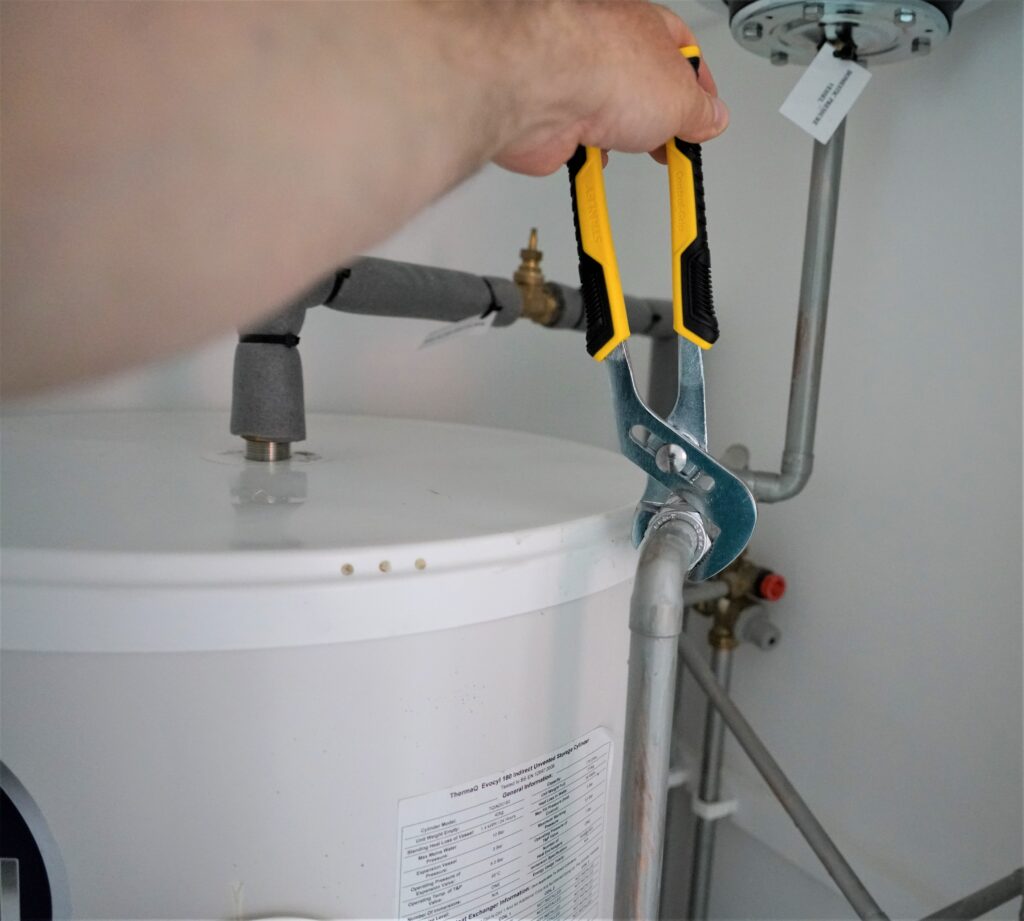
Consider the installation process and ongoing maintenance requirements when choosing an iron filter for well water. Some systems may require professional installation and regular servicing to ensure optimal performance.
Regular maintenance tasks may include backwashing the filter, replenishing chemicals, or replacing the filter media. Ensuring proper installation and maintenance will maximize the efficiency and lifespan of your iron filter, providing you with clean, iron-free water for years to come.
Call us at 289-962-4811 today for trusted water filter installation services in the GTA region. As an HVAC provider with unmatched client reviews and years of experience, we can provide the best recommendations for other home systems.
Does a Water Softener Remove Iron?
A water softener system can remove small amounts of iron from water, but its primary function is to remove hardness minerals like calcium and magnesium. If the iron content in your water is low (typically up to 2-3 parts per million), water softener iron removal might be effective in removing it.
However, for higher concentrations of iron or different forms of iron, such as ferric iron or organic-bound iron, a water softener may not be sufficient. A dedicated iron filter would be more appropriate.
It’s important to note that while a water softener system can remove some iron, the presence of iron can also reduce the efficiency and lifespan of the softener’s resin bed. If you have significant iron in your water, it’s recommended to use an iron filter before the water softener to protect it and ensure optimal performance.
The Impact of Iron in Water on Your HVAC Systems
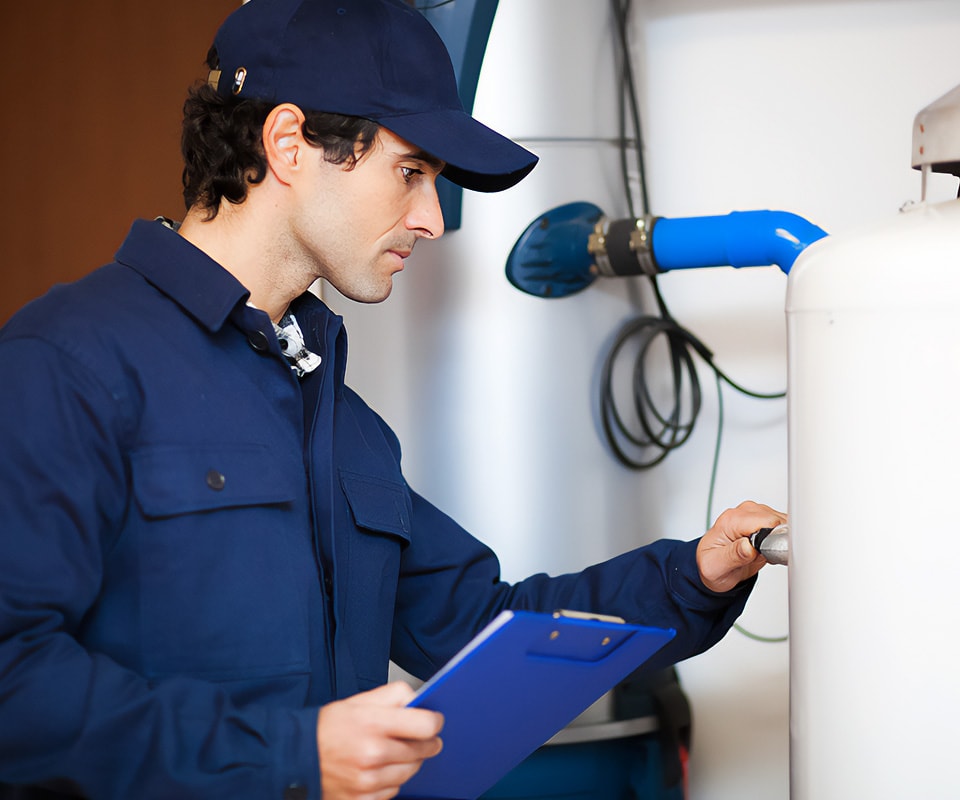
Iron in water can pose a risk to various HVAC components, particularly in systems that utilize water for heating or cooling. For example, boiler systems and cooling towers can suffer from scale buildup and corrosion due to excess iron, leading to decreased efficiency and potential system failures.
Did you know that an excessive amount of iron in your water could lower the lifespan of your heat pump?
Additionally, heat exchangers, pumps, and valves can also be affected by iron deposits, which can restrict water flow and reduce heat transfer efficiency. In extreme cases, iron buildup can cause blockages in pipes and components, leading to costly HVAC repairs and downtime. Iron-laden water can also negatively impact indoor air quality by circulating through your HVAC system, leading to musty odours and potential respiratory irritants.
Preventing Iron-Related HVAC Issues
To prevent iron-related issues in HVAC systems, it’s crucial to implement proper water treatment solutions. This may include using a water softener system, iron filters, or chemical treatments to remove or neutralize iron before it enters the system.
Regular maintenance and monitoring of water quality can also help detect and address iron-related problems early on, ensuring the longevity and performance of your HVAC system. In addition to water treatment, routine cleaning and descaling of HVAC components can prevent the accumulation of iron deposits and maintain system efficiency.
By taking proactive measures to control iron levels in water, you can protect your HVAC system from damage and ensure its reliable operation. Additionally, you can enhance the air quality in your home, providing a more comfortable and healthier living space for you and your family.
Enhance Your Home’s Comfort with Dynamic Heating and Cooling

In conclusion, addressing iron in your water and considering getting a water filter for iron is crucial for maintaining the quality and safety of your home’s water supply. It’s also equally important to ensure that your HVAC system is functioning optimally.
At Dynamic Heating and Cooling, we specialize in providing top-notch HVAC maintenance services to keep your home comfortable and efficient all year round. From repair and maintenance to installation and emergency services, our team of licensed technicians is dedicated to delivering fast, reliable, and competitively-priced solutions for all your heating and cooling needs.
If you’re looking to enhance the comfort and air quality of your home, or if you need assistance with your HVAC system, don’t hesitate to reach out to Dynamic Heating and Cooling. Contact us today to schedule a service or to learn more about how we can help you maintain a comfortable and healthy living environment.

